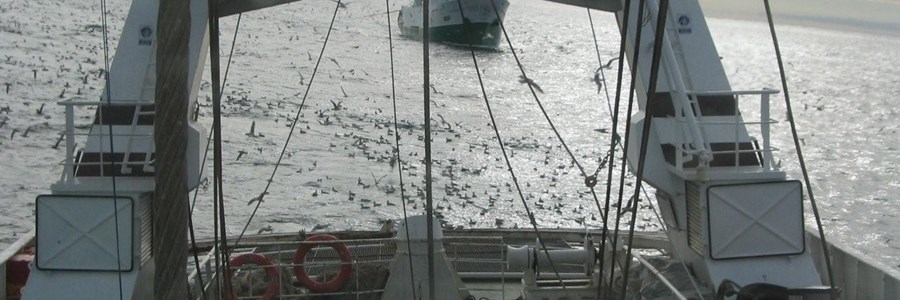Qui a réellement inverse la tendance ?

Déclaration de Javier Garat, Président d’Europêche, en réponse au Rapport de la Fondation Pew « Inverser la tendance » (‘Turning The Tide’).
“The Pew Foundation has recently unveiled its report Turning the tide: Ending overfishing in Northwestern Europe which claims that the changes to end overfishing adopted at the last reform of the Common Fisheries Policy are being threatened by high quota allocations and short termism.
“As the president of Europêche, the body representing 80,000 European fishermen and 45,000 vessels, I have to challenge this assertion and make clear that Pew’s report is hugely misleading."
“Firstly, the number of stocks within safe biological limits has almost doubled in the last decade, a fact which Pew fails to acknowledge. In the North East Atlantic many fisheries are already on the way to being put on a sustainable footing and great progress has been made by the industry itself to ensure stocks are healthy and abundant."
“The definition of overfishing has evolved so much over the years. Where once it meant stocks below a safe minimum, it now means stocks not yet at maximum in terms of sustainable yield. What would once be considered healthy is now considered overfished. Yet, even by this new definition, a decline in the number of 'overfished' stocks could be seen well before Maximum Sustainable Yield (MSY) targets were in put in place during the CFP Reform. In the North East Atlantic, an area that has seen a substantial reduction in its exploitation rate and an improvement in stock status, there are now 36 stocks being fished at MSY, compared to 27 last year and just two in 2003."
“It should also be pointed out, as is fleetingly referred to in the report, that under the CFP Reform, scientific TAC advice is set within the policy framework to deliver MSY by 2015 and 2020 at the latest. This is to give the sector time to adapt to the inevitable hefty cuts in quota, which will be slowly increasing year on year, and ensure our fishing industry can remain economically viable."
“Secondly, environmentalists cannot lay claim to changing the tide of overfishing and depleting stocks. The tide turned 15 years ago, with fishing mortality across all the main stocks in the North East Atlantic being halved since 2000. The reason the Pew organisation may not be aware of this is because it is many years before it expressed any interest in our fisheries and a full 13 years before the CFP reform."
“We can identify around 20 individual measures that underpin this turnaround, probably the most significant being the fleet reduction in various member states. Major advances in fishing gear and techniques have also played a part. All stocks are responding to these changes – some dramatically, others more slowly – but the fact is Pew has failed to acknowledge this natural variation."
“Europêche and the wider fishing industry welcome input from all factions to address and overcome challenges in achieving sustainable fisheries. However, by being selective with the facts to constantly portray fishing in the most negative light, real progress is not being made."
“Misleading reports such as these only serve to push the sector into further disrepute at a time when our fishermen are making huge progress towards achieving sustainable fisheries."
ENDS
____________________________________________________________________________________________________________________________________________________________
Europêche represents the fisheries sector in Europe. Currently, the Association comprises 12 national organisations of fishing enterprises from the following 9 EU Member States: DE, DK, ES, FR, IT, MT, NL, PL, UK.
Press contacts: Kathryn Stack, Managing Director of Europêche:
+32.2.230.48.48 kathryn.stack@europeche.org
Sources: Europêche
Tags: javier garat, europeche, fisheries, overfishing, maximun sustainable yield, north atlantic fisheries